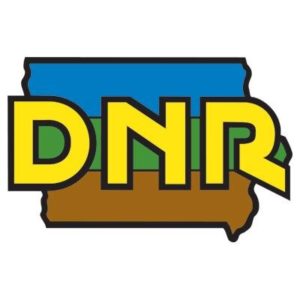 The first of Iowa’s popular shotgun deer seasons is Dec. 3-7 when an expected 75,000 orange clad hunters head to the timber. That group will be followed by 50,000 hunters who prefer the Dec. 10-18 second gun season.
The first of Iowa’s popular shotgun deer seasons is Dec. 3-7 when an expected 75,000 orange clad hunters head to the timber. That group will be followed by 50,000 hunters who prefer the Dec. 10-18 second gun season.
Each contingent will also pack along thousands of antlerless tags, to extend their time in the field.
Fans of cold weather purchased about 40,000 tags for the Dec. 19-Jan. 10 late muzzleloader season.
Iowa’s shotgun seasons allow for group drives; drivers pushing deer toward blockers. Anyone in the group may tag a downed deer—with their own tag. That stands in contrast to other states—and even Iowa’s more solitary muzzleloader and bow seasons. However, it has proven to be an efficient method for taking deer, since modern deer hunting was introduced here in the early 1950s. Whatever the season, any deer must be tagged before it is moved or within 15 minutes—whichever comes first.
It also holds the potential for danger, as drivers move closer to, or across, their friends on a drive.
That’s why wearing solid blaze orange is mandatory. The minimum amount covers a hunter’s torso. But more is better.
For several years now, deer hunters have noticed fewer whitetails than in the early 2000s. That is by design. A decade ago, state lawmakers instructed the DNR to reduce the deer population, after steady growth through the previous few decades.
With addition of county and season specific antlerless tags, generous quotas, and a couple extra seasons near Thanksgiving and during January, hunters responded. Adaptive regulation changes have lowered the deer herd to mid-1990s target levels, in all but a handful of counties.
Hunters in 27 north central and northwest counties have no county antlerless tags and may take only antlered deer during the first shotgun season.
Iowa’s overall deer harvest across all seasons last year was 105,401, down 30 percent from the 2006 peak and the 2016 harvest should be similar. The 2014 harvest was estimated at 101,595.
“Now is a good time for the DNR to work with hunters and landowners to help develop a better understanding of proper deer management; including the benefits of harvesting does and keeping deer numbers at ecologically acceptable levels,” stresses Andrew Norton, state deer biologist for the Iowa Department of Natural Resources. “Hunters working with landowners at the local level are the best and most efficient way to keep deer numbers acceptable and provide a high quality deer herd.” ~Iowa Department of Natural Resources
